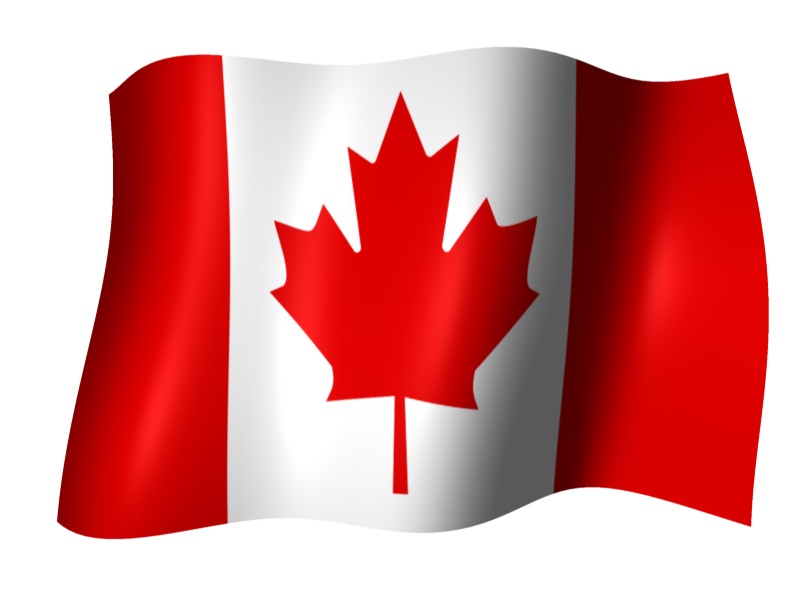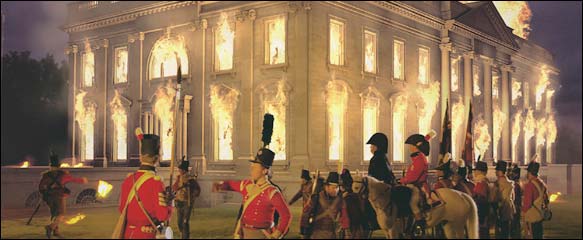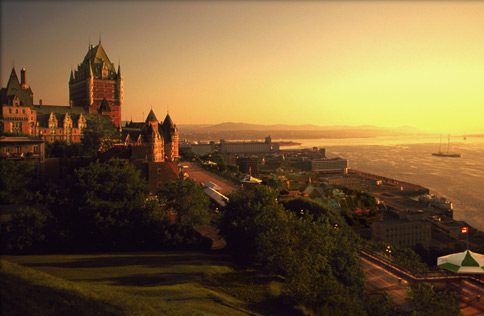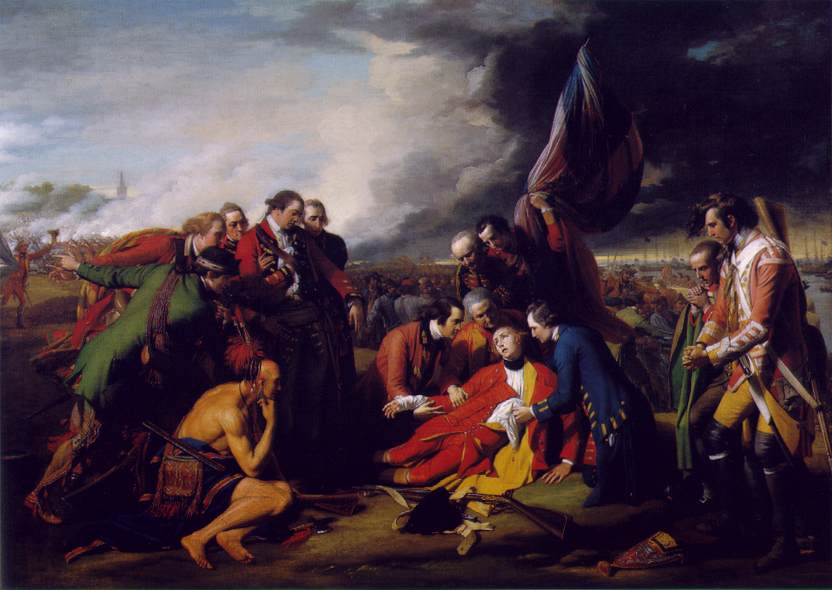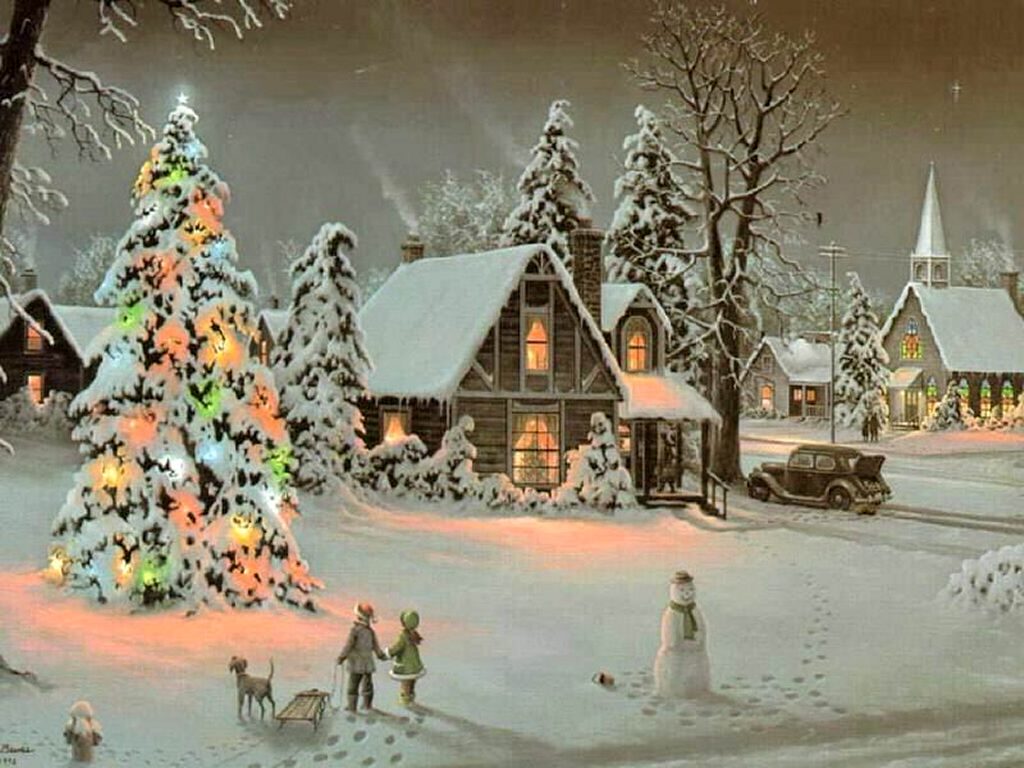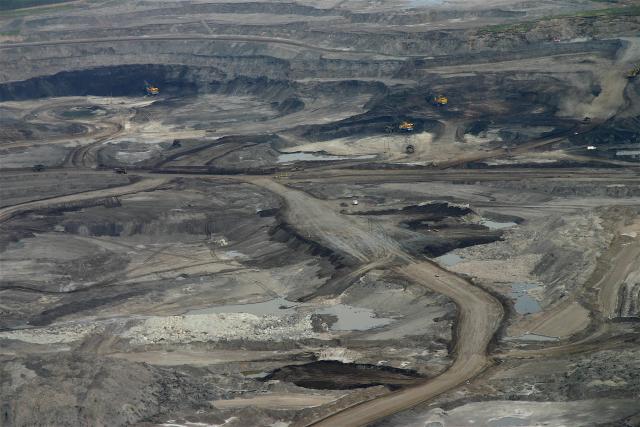
Suncor Millennium mine, just north of Fort MacMurray, Alberta
It’s our 143rd birthday. It’s cause for celebration and there’s no reason to begrudge that. But this country is now confronted with potentially disastrous environmental problems which we’ve tended to ignore for a very long time. Maybe on today of all days, that’s something to think about. The true patriot love we claim sustains us must include the environment we have a tragic history of exploiting.
Here’s one very telling measure: Canada, with its relatively small population, is, per capita, one of the world’s top two carbon polluters — lagging just behind the Americans, it might surprise many Canadians to know. In terms of gross tonnage, we consistently rank in the top ten (whereas France, with about twice the population, does not). Alberta, thanks to the tar sands, is the world’s most toxic source of oil mining and production. Under Stephen Harper’s Conservatives, we have simply abandoned our obligations under the Kyoto Protocol and revised our carbon “reduction” targets until they are completely meaningless. At this point, far from reducing our emissions levels as we are legally obliged to do, we’ve actually increased them by 30%. And, if the Conservatives have their way, there’s still a lot more where that came from. We Canadians, celebrated in song and story as decent, self-effacing, and harmless, have turned out to be the bad guys.
As always, our great homegrown genius, Northrop Frye, provides some insights on why this may be so:
Canada, with four million square miles and only four centuries of documented history, has naturally been a country more preoccupied with space than with time, with environment rather than tradition. The older generation, to which I have finally been assigned, was brought up to think of Canada as a land of unlimited natural resources, an unloving but rich earth-mother bulging with endless supplies of nickel and asbestos, or, in her softer parts, with the kind of soil that would allow of huge grain and lumber surpluses. The result of such assumptions is that many of our major social problems are those of ecology, the extinction of animal species, the plundering of forests and mines, the pollution of water, as the hundreds of millions of years that nature took to build up our supplies of coal and oil are cancelled out in a generation or two. The archaeologists who explore royal tombs in Egypt and Mesopotamia find that they are almost always anticipated by grave robbers, people who got there first because they had better reasons for doing so than the acquisition of knowledge. We are the grave robbers of our own resources, and posterity will not be grateful to us. (“Canada: New World without Revolution,” CW 12, 435-6)
The unbroken violation of nature in Canada, the economy founded on the trapping and mutilating of animals, the destroying of trees, the drying up of rivers and the polluting of lakes, began inspiring guilt and uneasiness long before the contemporary ecology movement. In Canadian poetry there is a special pathos in dying animals and falling trees, and in many tragic narratives, such as Duncan Campbell Scott’s At the Cedars and Birney’s David, where people are killed in log jams or on glaciers, there is a lurking sense not only of the indifference of nature to man, but almost an exasperation with this parasite of humanity that has settled on it. In one of Ernest Thomas Seton’s stories, a hunter is obsessed with the desire to kill a great mountain ram, simply because it is the most beautiful thing he has ever seen. He finally shoots it; reaction sets in; he cuts the head off and puts it on the wall of his cabin with a curtain over it and sits down to wait for the ram, as he says, to get even. Eventually a landslide buries him and his cabin. Modern ecology-conscious writing like that of Farley Mowat merely puts this conception of the nemesis of nature on a less fanciful basis. (“National Consciousness in Canadian Culture,” CW 12, 505)
Civilization in Canada, as elsewhere, has advanced geometrically across the country, throwing down the long parallel lines of the railways, dividing up the farm lands into chessboards of square-mile sections and concession-line roads. There is little adaptation to nature: in both architecture and arrangement, Canadian cities and villages express rather an arrogant abstraction, the conquest of nature by an intelligence that does not love it. (“Conclusion to the First Edition of Literary History of Canada,” CW 12, 349)
The religion that the British and the French brought to the New World was not a natural monotheism, like the Algonquin worship of a Great Spirit, nor an imperial monotheism like that of the Stoics, but a revolutionary monotheism, with a God who took an active and partisan role in history; and like all revolutionary movements, including Marxism in our own time, it equipped itself with a canon of sacred books and a dialectical habit of mind, a mental attitude in which the neighbouring heresy is much more bitterly hated than the total rejection of faith. The dialectical habit of mind produced the conception of the false god, a conception hardly intelligible to an educated pagan. All false gods, in the Christian view, were idols, and all idolatry came ultimately from the belief that there was something numinous in nature. The Christian teaching was that there were no gods in nature; that nature was a fellow creature of man, and that all the gods that had been discovered in it were devils. We have derived many benefits from this attitude, but it had a more sinister side: it tended to assume that nature, not being inhabited or protected by gods or potentially dangerous spirits, was simply something available for human exploitation. Everywhere we look today, we see the conquest of nature by an intelligence that does not love it, that feels no part of it, that splits its own consciousness off from it and looks at it as an object. The sense of the absolute and unquestionable rightness of man’s conquest over nature extended to other cultures regarded as being in a “state of nature.” The primary principle of white settlement in this country, in practice if not always in theory, was that the indigenous cultures should be destroyed, not preserved or continued or even set apart. (“Canada: New World without Revolution,” CW 12, 436-7)
From my study of Canadian literature, in particular, I have found much evidence of the critical principle of the fallacy of imaginative projection, that is, the notion that the poet can confront some impressive object like Niagara Falls or Lake Louise and become “inspired” by it. And egocentric consciousness, Pascal’s thinking reed, in the centre of a country as huge and unresponsive as Canada finds the environment less impressive than oppressive. It is not only that nature is so big and the winters so cold, but also that there is a lurking feeling that if anything did speak to the poet from nature it would speak only to condemn. That is why I have adopted for my title the last line of Earle Birney’s poem Can. Lit.: “It’s only by our lack of ghosts we’re haunted.” There are gods here, and we have offended them. They are not ghosts, we are the ghosts, Cartesian ghosts caught in the machine that we have assumed nature to be. Hence the characteristic Canadian feeling noted by the scholar and critic Robert McDougall: “In our literature, heroic action remains possible but becomes so deeply tinged with futility that withdrawal becomes a more characteristic response than commitment. The representative images are those of denial and defeat rather than fulfilment and victory.” (“Haunted by Lack of Ghosts,” CW 12, 477-8)
Still more important is the Canadian sense of the close relation of the people to the land. Everywhere we turn in Canadian literature and painting, we are haunted by the natural world, and even the most sophisticated artists can hardly keep something very primitive and archaic out of their imaginations. This sense is not that of the possession of the land, but precisely the absence of possession, a feeling that here is a nature that man has polluted and imprisoned and violated but has never really lived with. (“Canadian Culture Today,” CW 12, 518-19)
There any number of ways in which such activities cans be defended or rationalized; but to begin one’s culture by severing so many links with nature and the earlier inhabitants poses the most formidable problems for its development. As Anna Jameson suggests, can one really destroy so many trees without stunting and truncating human lives as well? I have often had occasion to notice the curiously powerful resonance that the killing of animals has for Canadian writers: Irving Layton invests the death evven of a mosquito with dignity. Among Ontario writers, we notice how the action in Margaret Atwood’s Surfacing is directed toward reversing the current of the destroying and polluting of nature; the heroine, searching for what is both her father and the as yet unspoiled source of Canadian life, wants “the borders abolished . . . the forest to flow back into the place his mind cleared.” Al Purdy’s The Death of Animals, a very intricate and subtle poem among many of his that deal with similar themes, shows us how the real horror in man’s attitude to nature is not so much deliberate cruelty as total indifference, a feeling that man and nature have no life in common whatever. (“Culture and Society in Ontario, 1784 – 1984”, CW 12, 615-16)
As I understood it, a garrison brings social activity into an intense if constricted focus, but its military and other priorities tend to obliterate the creative impulse. In one brief interval of relaxation, after the peace of 1763, a novel called Emily Montigue was written by a woman named Frances Brooke in the garrison town of Quebec. It is not only the first novel written in Canada; it is one of the earliest novels to be written anywhere. But a more typical garrison attitude survived psychologically in the rural and small-town phase of Canadian life, with its heavy pressures of moral and conventional anxieties. Canadians are now, however, one of the most highly urbanized people in the world, and the garrison mentality, which was social but not creative, has been replaced by the condominium mentality, which is neither social nor creative, and which forces the cultural energies of the country into forming a kind of counter-environment. (“Speech at the New Canadian Embassy,” CW 12, 647)
Ecology, the sense of the need for conserving natural resources, is not a matter of letting the environment go back to the wilderness, but of finding some kind of working balance between man and nature founded on a respect for nature and its inner economies. As part of natural human ecology, of conserving not only our natural but our cultural and imaginative resources. Again, this is not simply a matter of leaving alone everything that is old: it is a way of life that grows out of a sense of balance between our present and our past. In relation to the natural environment, there are two kinds of people: those who think that nature is simply there to be used by man, and those who realize that man is himself a part of nature, and will destroy himself if he destroys it. In relation to time and human history, there are also two kinds of people: those who think that the past is dead, and those who realize that the past is still alive in us. A dead past left to bury its dead ends in a dead present, a society of sleepwalkers, and a society without a memory is as senile as an individual in the same plight. (“Canada: New World without Revolution,” CW 12, 441)
